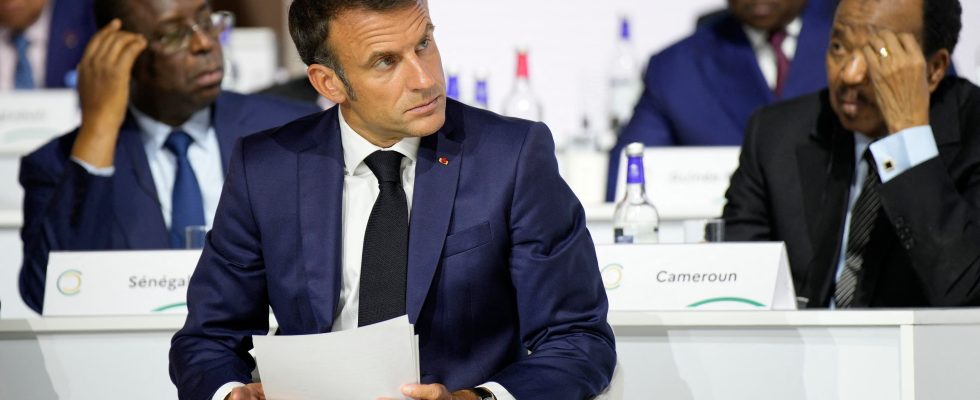Congratulations to President Emmanuel Macron for the $100 billion in climate aid pledged at the Paris Summit for a New Global Financial Pact. It looks good on him: climate activists love the attention their cause is getting, and leaders love the pipelines of money coming in. But as an African, I see all this as a new charade: everyone wins, except the ordinary African.
Will part of this 100 billion dollars (if paid) go to Africa? Yes, the leaders and their close relations will be inundated with new funding. Will any of it end up in the designated projects? Yes, for some. Will the Western or Chinese companies that win these contracts, leave behind green energy or other relevant infrastructure to concretely improve the lives of ordinary Africans? Yes, but to a very small extent.
Suppose that of the alleged $100 billion, $50 billion is directed to African governments (high estimate). Suppose the leaders and their entourage only suck up $10 billion (a low estimate). Of the remaining $40 billion, in 54 countries and for 1.3 billion people, $30 billion is likely to go to foreign companies, of which only $10 billion goes directly to African workers (high estimate). With generous estimates, the average African worker could see less than $10 of that amount in wages! And, of course, the vast majority will see zero.
Will we all benefit from this great green technology? Perhaps, it still has to meet people’s needs. In Africa, there are useless solar collectors installed where women urgently need propane for cooking. Between 1 and 2 million women die each year due to indoor air pollution. By cooking with charcoal or biomass, their lungs are burning every day, while propane is safe, affordable and readily available. But saving those lives is less marketing than solar panels.
Unrealizable climate scenario
Meanwhile, the EU and a coalition of NGOs are pushing to halt oil and gas development in Africa. Notably the highly publicized East African Crude Oil Pipeline (EACOP) project. With this project, Uganda estimates the value of its oil and gas assets at $116 billion and about 20 African countries are expected to become serious oil producers in the coming decades. We still have to give them this chance. If the international community shuts down African fossil fuel production, the total cost to African economies would be far greater than any “loss and damage” compensation received by African governments.
Africa’s oil and gas reserves are worth about $12 trillion at current prices and possibly more (some estimates go up even higher, here we take into account the distance with the European market and the uncertainty vis-à-vis the conflicts). The value of these assets does not include the potential impact on economic growth of reliable and affordable energy sources – which could represent a significant multiple of this figure. Emmanuel Macron’s $100 billion “achievement” is incomparable to the cost of shutting down African oil and gas and the associated future economic development.
Africa is paying the consequences of a script almost impossible to achieve. Meanwhile, China and India, as independent powers, will continue to exploit their natural resources, including coalto achieve the economic growth they need to achieve the prosperity their people deserve (like any people!)
Africa remains the poorest and most dependent region in the world. Because most African nations depend on the developed world for their finances, our leaders continue to bow to the white man to line their pockets. Without propane, our women will continue to die. Our people who could have benefited from oil and gas development will not. Macron and climate activists will laud their work, which will benefit a small elite of African leaders, their connections, as well as Western and Chinese entrepreneurs. Those, yes, just got another victory. Not the African people.
*Magatte Wade is the founder and CEO of SkinIsSkin.com and Executive Director of the Center for African Prosperity of Atlas Network.
